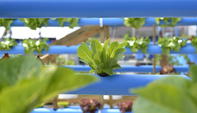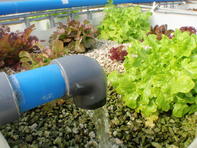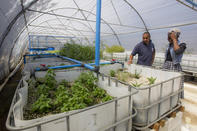Aquaponics and the Green Revolution
The world may face a serious food shortage if immediate action is not taken to prohibit unsustainable agricultural practices. This was the message in the 2019 report from the World Wide Fund for Nature (WWF), which indicates that South Africa will have to produce 50% more food to provide for its estimated population of 73 million by 2050.

Can aquaponics act as a food system and be the solution to South Africa’s food shortage? The European Union Parliament's Science Committee believes so. In their 2015 report, aquaponics was listed as one of the top-10 technological developments that could positively influence people’s lives over the next 50 years.
The world is close to a complete food system revolution. With that, the agricultural sector is entering its second green revolution - this means that we will have to be smarter and find ways to produce more environmentally-friendly foods. The changes, innovation and modern technology needed for the green revolution already exists, this includes sustainable energy provision.
Producers and agricultural enterprises must build inclusive, sustainable, effective and nutritious food systems through leadership-driven, market-based actions and mutual cooperation between interest groups and experts that can provide knowledge on the sector. Research and innovation must be incorporated into production practices and these practices should be more production-driven.
What is Aquaponics?

Aquaponics is the production method of producing organic food at affordable prices. Aquaponics is the breeding of freshwater animals such as fish and lobster in a recirculating aquaculture system, in combination with the production of plants without soil in a hydroponic system. The fish in the aquaculture system live in a symbiotic relationship with the plants in a closed ecosystem.
The waste of the fish is rich in phosphate and nitrogen that dissolves in water and is broken down by artificial bacteria in a non-toxic form. The waste serves as nutrients for the plants.
The plants in turn filter the water and cleans it before it is recirculated to the fish. No waste products goes into the environment and 90% less water is used in aquaponics than in traditional open field agriculture practices.
Aquaponics Training and Education
